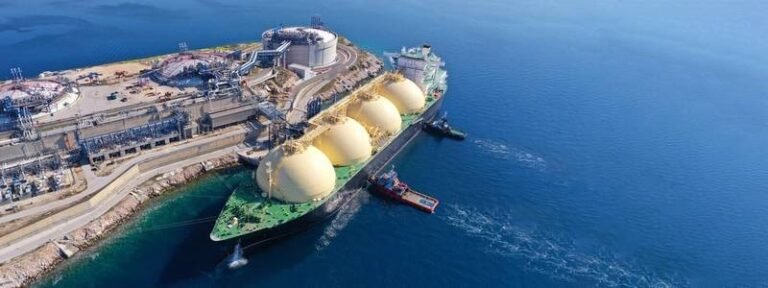The United States Department of Energy Eases Regulations on LNG as Marine Fuel
The United States Department of Energy (DOE) has taken a significant step towards promoting the use of liquefied natural gas (LNG) as marine fuel by issuing an order that removes barriers for its utilization in powering vessels. The move is aimed at reducing regulatory burdens and facilitating the growth of this important segment of the LNG market.
The order, which modifies a prior order issued to JAX LNG under the previous administration, pertains to the oversight of LNG bunkering, specifically for marine vessels. JAX LNG, a small-scale coastal LNG facility located in Florida, provides LNG as fuel to various types of ships, including cruise ships, car carriers, petroleum tankers, and container ships.
Tala Goudarzi, Principal Deputy Assistant Secretary of the Office of Fossil Energy and Carbon Management, stated, “Today’s action is a significant step in reducing regulatory burdens and helping this important segment of the LNG market continue to grow.”
Key Modifications in the Order
The modified order clarifies that the DOE is withdrawing its jurisdiction under the Natural Gas Act (NGA) for ship-to-ship transfers of LNG for marine fuel use at U.S. ports, in U.S. waters, or in international waters. However, ship-to-ship transfers of U.S. LNG when the receiving ship is located in the territorial sea of a foreign country, including foreign ports, will still be considered an export.
Additionally, DOE has maintained its authorization for JAX LNG to export LNG via ISO container, ensuring continued support for LNG bunkering activities.
Growth of LNG as Marine Fuel
The use of LNG as marine fuel has been on the rise in recent years, driven by more stringent emissions regulations in the shipping industry. According to the IEA’s January 2025 Quarterly Gas Report, the number of LNG-fueled ships is expected to nearly double and surpass 1,200 vessels by 2028, based on the current order book for vessels.
This growth indicates a shift towards cleaner and more sustainable fuel options in the maritime sector, aligning with global efforts to reduce greenhouse gas emissions and combat climate change.
The DOE’s order to ease regulations on LNG bunkering is a positive development that supports the expansion of LNG as a viable marine fuel, offering environmental benefits and contributing to the decarbonization of the shipping industry.

